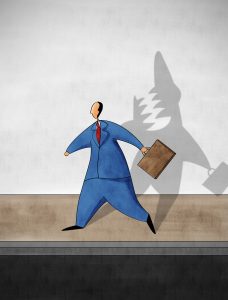Cheating = Privilege = Wealth (ouch)
– by Coach Colle Davis
 The attraction and rewards for cheating are built into society.
The attraction and rewards for cheating are built into society.
Modern society encourages cheating because it works. Lying and cheating are powerful, and anyone can do it. Inequity breeds the need and desire to cheat, lie, steal, and push others down to get ahead. This is a form of social competition at its finest.
Children learn to cheat from their parents, peers, and on their own. The first time they deny they cheated and were confronted, they began a life cycle of lying. They knew the act was forbidden; they took a chance, did it anyway, and got caught.
Research shows that bending the truth is more acceptable than telling the truth.
In findings published today, a report suggests children who tell blunt truths such as “I don’t want this present—it’s ugly!” are judged more harshly by adults than those who bend the truth to be polite or protect others.
Getting caught hurts. The goal is to see how much one can get away with lying in as many interactions as possible. Gangs and cults are built on this urge to test the boundaries. People escalate their behavior and continue cheating until they get caught or they get elected.
 The rewards for cheating are so high and the risks are so low there appears no reason not to cheat. Why would someone want to be straight, honest, and caring? These fine qualities do not pay as well as cheating. Cheating and lying pay extraordinary dividends compared to the risk involved.
The rewards for cheating are so high and the risks are so low there appears no reason not to cheat. Why would someone want to be straight, honest, and caring? These fine qualities do not pay as well as cheating. Cheating and lying pay extraordinary dividends compared to the risk involved.
“Everyone lies,” is famous quote by the main character Gregory House MD in the popular television show House (2004-2012).

- AXIOS is one of the premier news outlets in the US read by executives, entrepreneurs, and open-minded citizens who demand proof of the truth. This information was published today in their newsletter. To read more about lying, click through link above. Here is a snippet of the article:
Axios Finish Line: Truth is good for health
The average American tells 11 lies a week.
• “Why it matters: Lying less actually improves our mental and physical health according to a recent study by researchers at Notre Dame.
• They asked a group of people to stop telling lies for 10 weeks and told a control group to continue as normal.
• The group of truth-tellers reported fewer instances of poor mental health, such as feeling tense or melancholy, as well as fewer physical symptoms, like sore throats or headaches.
• The truth-tellers also reported improvements in their relationships with friends and family. And they said they felt generally more honest by the fifth week of avoiding lies.”
– By Erica Pandey author of Axios Finish Line.
 Politicians aside, just look at the news over the last few weeks, and you will see the story of two fishermen in an Ohio fishing tournament who had loaded 8-ounce lead balls inside the fish to win the competition. Arrests were made after outrage and a video showing the lead balls being gutted from the fish. There was also the case of the accused chess cheating scandal between chess champions. The suspected cheater is now suing his accuser for $100 million, claiming his innocence.
Politicians aside, just look at the news over the last few weeks, and you will see the story of two fishermen in an Ohio fishing tournament who had loaded 8-ounce lead balls inside the fish to win the competition. Arrests were made after outrage and a video showing the lead balls being gutted from the fish. There was also the case of the accused chess cheating scandal between chess champions. The suspected cheater is now suing his accuser for $100 million, claiming his innocence.
The trivial lie is accepted to grease and smooth interactions between people. ‘Lovely shoes’ may or may not be accurate for you. It may mean the world to the person receiving the compliment. Why is that level of dishonesty accepted and encouraged? Because it helps keep the interactions on a light level. No one wants to hear the truth. Right?
• Where does the harmless lie begin to take on color or shading? Who decides? What harm could it possibly cause? See how easy it is to get sucked into being dishonest? The question becomes, “What is in it for you? And what are you willing to risk to get your outcome?”
• Look at the last few days to see if you have been completely honest in all your interactions or if you have shaded the truth to fit the moment. Your rewards are a smoother interaction, a one-up on someone, a subtle putdown, or an advantage in a business or work situation.
• Each of these qualifies as a reward, and you are rewarding the behavior you wish to encourage.
 • Are you a liar, a cheat, and are you being dishonest? There is a good chance you are also feeling a bit uneasy about your behavior, or maybe not. Test yourself to see if you are a liar by committing to tell the truth for 24 hours. You will know the results by the day’s end. Others may not, but you will.
• Are you a liar, a cheat, and are you being dishonest? There is a good chance you are also feeling a bit uneasy about your behavior, or maybe not. Test yourself to see if you are a liar by committing to tell the truth for 24 hours. You will know the results by the day’s end. Others may not, but you will.
• A lifetime of getting away with dishonesty dulls the urge and need to be truthful. Is it time for you to join a growing list of cheaters?
• Is telling the truth no longer a societal norm? Are the standards of decorum no longer observed because they restrict the power of those in power or who want power. What needs to happen for the truth, honesty, and integrity to matter to you?
• Perhaps it is best if we learn to lie and cheat more elegantly. Though the outcomes are less certain when lying because some people will call you on your stuff. Then you can use the howling yells of righteous indignation to refute their rebuff. Bang on a table. Raise your voice. This technique appears as the favorite gambit of politicians and media types. The outcomes (so far) seem to justify the methods, or as the old expression goes, the ends justify the means. Is your reputation important enough to take the occasional hit from an idiot or a zealot? Being honest is harder than being dishonest. It’s worth a try.
• In today’s world, being honest can be dangerous and requires some skill in delivering honest information and feedback. Notice what happens to those opposed to religious stupidity within a denomination, government suppression, financial manipulation, and other controlling pressures. Calling the powerful on their lies gets the truth seekers jailed, humiliated, and often killed. That is a deterrent to being honest in public.
Honesty may not come back into fashion for a while (sad, I know), but when it does, the world has a chance to be more peaceful, caring, and respectful. One can hope for these things.
My commitment to you, Dear Readers, is that I will be honest with you in MyCoach’s Notes.

Coach Colle Davis
Colle Davis, Executive Coach. For more help, encouragement, or to turbocharge your life, call or email me. I am a Senior Level Master Coach and Certified Hypnotist with over 30 years of helping corporate clients. Reserve your free twenty-minute Zoom call with me, and your life will never be the same. 804-467-1536 EST cdavis@mycoach.com In the meantime, stay safe and have fun.
